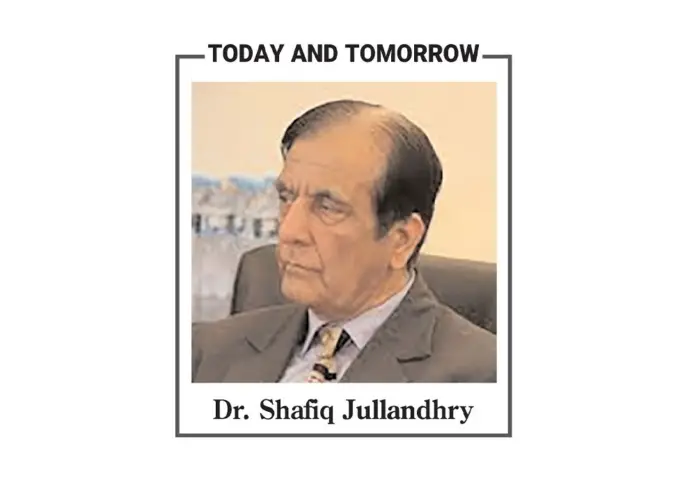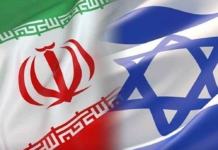With the increasing intensity of floods, food scarcity, and high prices, the nation is witnessing the most dangerous type of politics in its history. Millions of people have been affected directly by the torrential downpours and flood devastation. Floods have taken hundreds of lives and engulfed thousands of acres of crops. Many cities in the Sindh province, including Karachi, have this havoc on their streets. Balochistan, KPK, and Punjab were not exceptions. Thousands of houses collapsed in cities, and mud houses vanished in villages, with residents discovered sitting on the higher ground surrounded by water.
Poor people listen so much, day and night, to their political leadership and come to know that they and their political parties are always ready to sacrifice their lives for the cause of the poor people of the country. But they were disappointed badly, just like their ancestors. Politicians remain busy collecting kickbacks, party funds, and arranging music shows. Besides their colourful statements and photo sessions, they could not find enough time for these ruined families. Rulers were very busy with their blame games and registering cases against each other. They announced some amounts for the affected families, but God knows when this help will reach the deserving ones. No doubt, military rescue operations are visible continuously. Most families are sitting in the open air, without any cooking utensils, cots, clothes, or food. These folks belong to the working class and are not beggars. But they are in need and are facing agony. In the cases of those who have lost their houses and crops, this trouble is not short-lived. Along with support for their immediate needs, they will also need money to build or repair their houses and also feed their families until the next crop harvest. I could listen to only one political leader from Sindh who pointed out the actual gravity of the havoc by saying that the loss is so vast that only governments cannot help the affectees properly, philanthropists, NGOs, and civil society should also join the resettlement of their Pakistani brethren.
No doubt, government high-ups are also worried to some extent and are doing whatever is considered appropriate for them. The main drawback is the lack of information regarding the places where one can go to help the affected directly. People generally don’t trust government functionaries and NGOs to give them their donations. It has been observed that after getting direct access to the needy people and knowing their real needs, different communities start making ration packs for them and arranging beds and clothes etc. They arrange the trucks and go themselves with their donations and also help the needy financially. If the roads have been engulfed by the floods and the villages have been drowned, then donors might know the exact place and approach to the present stay of these unfortunate people.
Governments and the National Disaster Management Authority (NDMA) have entirely failed in their communication policy regarding this national disaster. At such junctures, the NDMA must serve mainly as a reliable source of complete, all-faceted information. Unfortunately, NDMA is not visible in all of the present flood scenarios. Government surveys and confirmation of destroyed or damaged houses and wiped-out crops will take enough time. But affected people need immediate help to feed their children and take care of diseases. These people want to stay as close to their villages and fallen houses as possible. Who knows how long it will take to drain the water from their dwellings and agricultural lands? Nevertheless, bringing them to different camps arranged by the government and informing the general public about their addresses is the greatest need in this regard. The latest information about the road conditions reaching such places is also important. Complete data about the families in trouble is also important. People who come to help these camp people must be given complete information about the families and the government and private grants received by every family so far. This will make things certain that no one will be left hungry and devoid of necessary food rations and other necessities.
The nation has not forgotten the Swat and Azad Kashmir earthquakes. We gained so much experience from the Atta Abad massive landslide and displacing thousands of people only to fake suspicions of bursting the lake. There was no sound ground for that risk, but displacing families provided so many perks to the administrators. This misinformation deprived the Gilgit and Hunza people of their sleep for many months. In Swat’s case, there gathered many groups who remained present on the main roads all the time and grabbed all the donations from the trucks coming from other parts of the country. They filled huge halls with these “looted” donations, and it took enough time to recognise their real faces and send the help to the deserving ones. People remember the services of a radio station that started its special services to help the affected. by the Institute of Communication Studies, Punjab University, Lahore. It was run by Dr. Amir Bajawa, present Chairman of the Media and Communication Department, Garrison University, Lahore. It proved very helpful and was eulogised a lot. Our national media played a very effective role in the Swat and Kashmir earthquakes. They were continuously informing the nation about what types of things were needed at what places. People’s donations reached hundreds of trucks from Karachi, Lahore, Islamabad, and Peshawar and were distributed justifiably.
The nation has also witnessed Besham’s earthquake during the Zulfikar Ali Bhutto government. So much help came from abroad but hardly ten percent of that might have been received by the affectees, but most of the blankets and other donation items were seen being sold in the markets. Even now, it is not difficult to get millions of dollars in donations from abroad, but the real problem lies in the just distribution of everything. Dishonesty means not only showing oneself senseless about the hardships of the flood affectees, but depriving them of that aid also that has been sent by others. It is miserable that under the heat of politics our media {and social media) couldn’t play that role that was played by it during Swat and Kashmir earthquakes.






